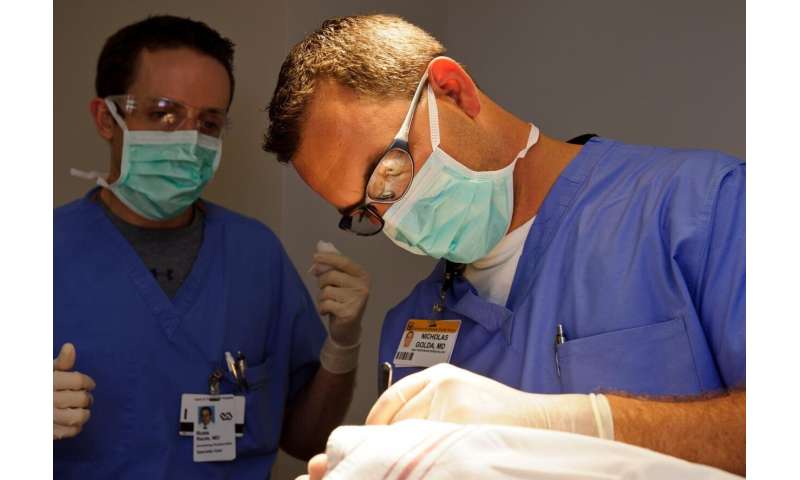Study identifies optimal timing for phone calls after skin surgery

Phone calls after Mohs micrographic skin surgery can address patient concerns and quickly identify complications. But what is the optimal time for dermatologists to check-in with surgical patients after surgery? A new study from the University of Missouri School of Medicine and MU Health Care provides insight into how the timing of post-operative phone calls can address pain, bleeding and overall patient satisfaction.
Researchers enrolled 400 patients into a randomized controlled trial that included four arms. The control group did not receive a call after surgery. The second arm received a call from a physician the evening of Mohs micrographic surgery. The third group received a call the day after surgery. The fourth arm received a follow-up call two days after surgery. The doctors used standardized scripts on all calls to gauge bleeding and insufficient pain control. In addition, patients on all four arms of the study received a phone call seven to 10 days after surgery from research staff to assess their satisfaction. The results from the study showed 83% of patients contacted the evening of surgery experienced active pain, compared to 67% on day two and 51% on day three.
“We found follow-up calls made the evening of surgery best identified patients with active pain,” said senior author Nicholas Golda, MD, associate professor of dermatology at the MU School of Medicine. “This presents an opportunity to better coach patients through pain management and adjust medications if the calls are made on the evening of surgery rather than at other points.”
While the study identified when a patient is most at-risk for active pain, no single group best identified bleeding complications or highest pain levels. In addition, a comparison of the four groups designed to evaluate different aspects of patient experience did not show any statistically significant differences.
“While surgeons may elect to make follow-up calls, these do not seem to strongly contribute to overall patient satisfaction,” Golda said. “It is somewhat surprising that the control group’s experience, quality of care and willingness to recommend scores matched the groups that received follow-up calls. This finding is contrary to our previously held belief that these calls directly affect patient satisfaction.”
Source: Read Full Article



